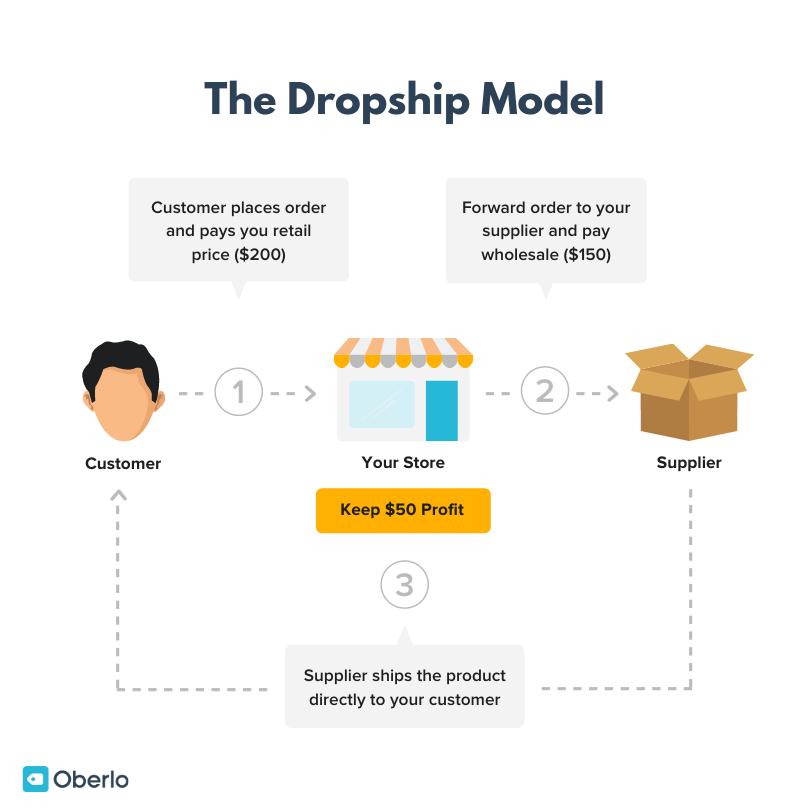Grit. Grind. Determination.
If you’re a business owner or an aspiring one, you can relate to these traits.
When we think about people who start and run a business, the word entrepreneur always comes to mind. We eat, sleep, and breathe entrepreneurship.
But lately, the term solopreneur has been popping up all over the place.
While it’s obvious where the word comes from (a mix of “solo” and “entrepreneur”), it’s not always obvious who exactly counts as one versus an entrepreneur or freelancer.
Are you wondering if you’re technically a solopreneur? Or maybe you’re interested in being one, but not quite sure where to start?
Fret not. You’re in the right place.
I’ll be your tour guide on a journey through the ins and outs of solopreneurship – what the word means, some solopreneur ideas, and tips to nail it when you take the plunge.
Post Contents



What Is a Solopreneur?
Oxford Languages defines a solopreneur as “a person who sets up and runs a business of their own.”

→ Click Here to Launch Your Online Business with Shopify
Merriam-Webster’s meaning of solopreneur is similar, but with a bit more detail: “one who organizes, manages, and assumes the risks of a business or enterprise without the help of a partner.”
Solopreneur is a relatively new word. So while the broad definition is straight-forward, you’ll find a lot of different interpretations over the details of solopreneurship and how it relates to other types of business owners.
For example, some will tell you that a freelance writer counts as a solopreneur. Some will tell you that a freelancer is only a freelancer until their business grows to a certain scale – then they cross into the solopreneur realm.
Some say that solopreneurs don’t have anyone else working with or for them. And some say that solopreneurs often have contracted help, but not traditional full-time employees.
Solopreneur vs. Entrepreneur
When it comes to the question of solopreneur vs. entrepreneur, there’s one constant that everyone can agree with:
All solopreneurs are entrepreneurs, but not all entrepreneurs are solopreneurs.
Wondering which boat you’re in?
Let’s look at a few of the key differences to help you figure it out.
Solopreneurs do it all. Entrepreneurs delegate and manage.
When you look at a traditional business, you’ll typically find different people who fulfill different roles.
For example, there might be an accountant who handles all the financials and a marketing manager who handles all the marketing campaigns.

This isn’t the case for solopreneurs. They’re the ones in charge of all facets of the business. And depending on how big the company is, they’re often the ones who do all of the work.
Of course, this is also how it works for entrepreneurs who are in the early stages of building their businesses.
But the key here is intent: are you planning to hire and manage a team so that you can delegate the smaller tasks and focus on handling the bigger, more strategic decisions?
If so, you’re more of an entrepreneur than a solopreneur.
Solopreneurs have a growth cap. Entrepreneurs keep building and scaling.
Solopreneurs don’t want to build an empire. They want to stick with a smaller, more manageable business that allows them to make most or all of the decisions on their own.
This means that there’s a limit to what they can take on.
There’s only so much time in a day, so a solopreneur needs to figure out the right business model and tools to make sure they’re making the most of it.
On the other hand, the proverbial sky’s the limit for an entrepreneur. Once they hit their own personal growth cap – and they’ve made enough revenue – they can start to build out their team.
They can find partners and stakeholders, and hire as many employees as they need to make sure everything is running smoothly.
Which brings me to our next point.
Solopreneurs have less logistical decisions to make. Entrepreneurs have a lot.
Have you ever seen the calendar of a Fortune 500 CEO?
I haven’t either. But I can only assume that it’s absolutely jam packed with meetings, responsibilities, and important decisions to make.

The bigger your company grows, the more of these critical decisions will come your way. Which is one of the biggest reasons that solopreneurs exist.
Solo entrepreneurship gives you the benefits of being your own boss, without the draining demands of managing a full-scale company.
Solopreneurs who fly 100% solo don’t need to worry about benefits, payroll, and payroll taxes. They don’t need to worry about their profit margins after all the overhead is paid. They don’t need to spend hours training and managing new employees.
Solopreneurs have a single focus. Entrepreneurs can have many.
Many entrepreneurs are the kind of people who always have a new, exciting idea on their mind. They often build multiple businesses and pursue a bunch of different opportunities over the course of their careers.
It’s also common for entrepreneurs to have an exit strategy in mind. They might work their butts off to build an amazing company with the hopes of eventually selling it to a bigger company.
Once the sale is made, they can move onto their next project.
On the other hand, solopreneurs tend to be in it for the long run.
They’re closer to their work since they’re keeping it small and intimate. Many are content to stick with it until they’re ready to retire.
Keep in mind that these traits are interchangeable, though. An entrepreneur might devote their whole life to one passion project, while a solopreneur might look for a buyout.
Solopreneur Business Ideas
Interested in some solopreneur ideas? Let’s look at a few to get your juices flowing.
Ecommerce
Many aspiring solopreneurs get stuck in a rut because they lack cash to make an upfront investment, or they don’t have a high level of experience or skill on the path they want to pursue.
Starting an ecommerce store is an excellent “shortcut” to solo entrepreneurship.
This is especially true because certain ecommerce models, like dropshipping, don’t require much investment or prior experience.

There are tons of dropshipping solopreneurs who run their own stores, while some choose to scale up, build a team, and create an empire.
If you’re unsure if you want to be solo or have a full team, ecommerce is a good place to start. You don’t need to decide right now – just start a store and see where it goes.
Freelancing
Like I mentioned earlier, there’s debate around whether freelancers count as solopreneurs, and the point at which a freelancer becomes a solopreneur.
I’m in the first category: I think that established freelancers totally count. If you build a freelancing business then decide to scale it up with automation or contractors, that’s even better.
Aspiring solopreneurs are in luck because the freelance industry is booming.
In 2019, a survey by Upwork and Freelancers Union found that 57 million people in America alone do freelance work. And it’s becoming a full-time career path: 28 percent of participants said they’re full-timers vs. 17 percent in 2014.
Here are some of the top freelance services that are in demand right now:
- Marketing
- Writing
- Graphic design
- Programming
- Web design
- IT
- Video editing
- Writing
- Social media management
- Accounting
- Photography
- Virtual assistant
If you have any skills in these areas, or have always had an interest but never went for it, now is the time!
Consulting and coaching
Do you have loads of experience in a certain area? Want to get paid for your expertise?
Consultants and coaches are types of solopreneurs that have managed to leverage their skillsets and values. They’re sought out for what they know and what they can help others do.

What’s extra cool about these solopreneurs is that you can be a consultant and coach for pretty much anything.
Are you obsessed with nutrition and fitness? Be a health coach.
Can you sell anything to anyone with proven techniques? Be a sales consultant.
Have an education and background in smart business strategy? Be a business consultant.
What about building strong teams? Be a leadership consultant.
I think you get the gist here. Just keep in mind that you truly do need to be an expert. So don’t rush this one!
Selling digital content
We’ve all heard of coveted passive income (also called residual income).
With this kind of business model, you can literally make money while you sleep. It’s the true entrepreneurial dream.
There are plenty of solopreneurs who have found huge success selling content online. Like Tom Kuegler, who’s averaged $5,000 per month this year from his online course. He wrote a blog to tell us all about it – check it out here.
In addition to creating an online course, you can sell other digital downloads like ebooks, software, and apps.
You can also start a membership site that offers special perks like premium content or communities in a certain niche. For example, I’m a digital nomad and I jumped at the chance to join Nomad List, a community for people just like me.
Tips to Be a Successful Solopreneur
Do you know what it takes to be a solopreneur?
I’ll give you a hint: it’s the same stuff that it takes to be an entrepreneur, but with more focus on the “you” mentality than the “us” mentality.
Let’s look at a few tips to help you smash your business goals as a solopreneur.
1. Master your time management skills.
If I had a dollar for every time I wished for more time, I’d have… at least a hundred dollars.
I’m sure you can relate. In today’s hyper-fast, uber-busy world, we always find ourselves short on time.
Solopreneurs probably feel it more than the average person.
That’s why many of them are excellent time managers. They have tools, practices, and habits that help keep them productive and focused..
You might have success with a time tracker or becoming best friends with your calendar. You might block off time in the morning for the most important tasks, or start meditating to help you pay better attention to tasks.

2. Look into automation.
This is technically a time management tip, but it’s just so good that I had to make it its own.
The key to building and scaling – without necessarily draining your time or needing to hire more team members – is to automate as much as you can.
For example, if you’re dropshipping, you can use a tool to help automate certain aspects of your order fulfillment or customer service.
If you’re building a marketing funnel for your online course, you can automate things like your social media posts and email marketing campaign. Check out tools like Hootsuite, Buffer, and MailChimp.
3. Complement and grow your knowledge.
To be a successful solopreneur, you’ll need to have some business savvy. You’ll also need to be good at what you do.
Start with the knowledge and skills that you already have. What do you have experience with? What do you really love? What do you want to do, or think you’d be great at?
Ideally, you’ve already got some answers to these questions. If not, explore different solopreneur ideas and see which ones stick out to you.
You might need to brush up your skills before you can master them. But that’s all part of the fun, isn’t it?
Get Out There and Build Something
While it’s not 100% necessary to make sure you have the right label of solopreneur vs. entrepreneur vs. freelancer, what is 100% necessary is to get started.
From an ecommerce store to a life coaching business to a membership site, there are infinite possibilities for you to build and manage your own business (or grow a team, if that’s what you’re into).
You might be able to complement and grow from one or more of your existing skills or education, or you might want to dive into the unknown and try something you’ve always wanted to.
All that matters is that you take the plunge and see where it leads you.






